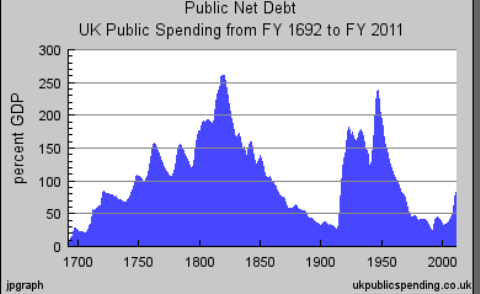Society values pro basketball players who provide entertainment far more than trash collectors who perform a vital service. We may need garbage collectors more than professional athletes, but it’s easy to find people who can pick up trash, while elite athletes are scarce by definition. In this case market supply and demand is a distortion of actual value. We are ok with athletes being paid millions of dollars to play a game because we suppose demand is sacrosanct, almost a godly force we dare not question. After all, we get paid what we’re worth, right?
Yet it’s illegal to buy cocaine or hire a hitman when there is undoubtedly demand for drugs and contract killing. Alcohol and liquor sales are heavily taxed to try to curb demand. Or what about medical treatments? When a patient is in danger of death, the value of the next treatment is theoretically infinite. So shouldn’t that next round of chemotherapy always cost everything the patient has left according to pure demand? The state already can and does regulate demand—it’s not off limits.
So why then do we let a football player or a movie star walk away with millions of dollars when its obvious there’s no way their contribution however important can be that large? When someone becomes a millionaire by throwing a ball around or playing make-believe on camera, the character and morale of the entire society is undermined.
What is the garbage man to think when society values a single movie star more than him dozens of times over? His task is so important, society can’t do without him for even a week. If movie studios were all shut down, it might be unpleasant news but people would get on with life.
So why not put a strict cap on the income of entertainers and their promoters? They provide services that people want and seem to generally do more good than harm by helping to create a thriving culture, so it would make sense to allow them to earn a good living, but becoming multi-millionaires would be out of the question. Entertainment is wonderful to have but it is a luxury, not a mainstay.
Obviously, a big budget movie gets made and its star actors paid millions because hundreds of millions of people are willing to pay for movie tickets. So I could see someone arguing that because demand exists, it should be allowed. But this is not enough. Otherwise we should also be willing to argue for the legalization of contract killing and robbery. The pattern I see is that demand is allowed to express itself so long as it does more good than harm to society. So now we have to decide if it is good for a society to pour billions of dollars of its wealth into a handful of entertainers. Surely there’s a limit on the worth of entertainment when there’s other things that need to be done.
As individuals, we value recreational time playing video games, watching movies, or blogging. Yet we have a time and money budget for our own entertainment. Similarly, a society ought to have a wealth budget for its luxuries. It may sound restrictive to limit what a pro athlete or day trader makes, yet we already accept sin taxes that curb and punish demand for cigarettes and booze. Sin taxes already carry the implicit recognition that we are not rational economic agents. We routinely make bad decisions. So we’re given a push in the “right” direction by the state. We can buy that bottle of vodka or pack of cigarettes, but we have to be willing to pay an extra fee that serves as both a disincentive and an indemnity to society. By the same principle we could cap the price for event and movie tickets or the acceptable budget cities can spend on stadiums to prevent or at least limit the misappropriation of society’s very finite wealth.
It would also be interesting to examine financial “products” and examine which of them return equivalent or greater value to society and which are a net drain or even cause damage.
Limiting the size of luxury industries brings up a big issue though—what about all the people that would lose their jobs in movie studios, stadiums, and concert halls? We ask this because we lose perspective of the big picture. We go to work to provide value to others and then get compensated in proportion to our contributions. Is it a net good to work at a stadium that cost the city’s tax payers billions of dollars to spend billions more on a luxury activity? If there’s nothing more productive to do with someone, why shouldn’t society just give them a guaranteed minimum income until there’s something more useful to do? Society comes out way ahead by just skipping the multi-billion dollar excuse to write a paycheck. No activity at all is far more valuable than useless activity. Just staying at home with some basic income, there is a small chance they may have the initiative to use their leisure time wisely and genuinely contribute to the good of the group.
We’ve been taught to think in a way that’s a distortion of Keynesian views. Keynes suggested hiring people to do useless tasks as one way to stimulate a depressed economy. Naturally, his prescription for emergency situations became the new normal, where making money is a good thing even if we’re building “useless pyramids” or paying people to dig a hole just to fill it in again. The trouble is this becomes a philosophy of economic nihilism in which human activity is divorced from purpose and meaning. People just want money and as long as no one is murdered outright, the means don’t matter much. Strangely, it sounds almost heretical now to suggest that markets and the accumulation of wealth ought to serve a purpose—to benefit the group in which we participate—that money awarded for unproductive or under-productive activity damages the integrity of society.
The survival of human societies in this world is a serious business; against other societies, against the pitiless forces of nature, and never-ending internal pressures. The elevation of frivolous things to the heights of accomplishment makes a mockery of the social order. A society where people worship “celebrities” over inventors, leaders, and entrepreneurs has lost its way. Such is a disaster of mob rule where the masses are allowed to determine who is great and who is low. When the undeserving get the best rewards, cynicism spreads and loyalty erodes until one day a nimble challenger full of confidence arises and proves more than a match for a mighty opponent crippled by rot.
The market is a form of economic democracy—every purchase is a vote. We have an electoral college and representatives in political democracy rather than a pure popular vote. So popular demand on the market must also be subject to controls, to curb and prevent tragedies of the commons. There already are rules such as monopoly prevention that implicitly acknowledge the market has a mission to fulfill. It is not there for its own sake. These principles just have to be extended until the market is re-animated with purpose as a healthy circulatory system.








